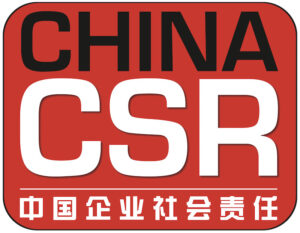By ChinaCSR.com Editors
This last week produced a gamut of Chinese corporate social responsibility activity that ran from foreign companies companies downsizing their staff to safety issues still surrounding producers of milk products.
Dissatisfied with a compensation package offered by the company for voluntary redundancy, more than 600 employees of Panasonic Electronic Devices (Beijing) Company besieged the office of three top company executives for about six hours last week. According to local media, the employees, who later left the office after the executives escaped from a back door, said they would file a complaint against PEDBC with the local labor department since the company urged them to quit their jobs of their own volition to evade its own responsibilities.
As the global financial crisis deepens, more companies will cut costs. China's new Labor Law went into effect on January 1, 2008, so companies operating in China need to be fully aware of the ramifications their downsizing actions have on their standing among stakeholders in China. Foreign companies are still feeling their way through this new Labor Law, and more companies should be learning from their peers on how best to handle these delicate situations.
With more college graduates facing difficulties in landing jobs in this difficult economic environment, China's Northwest University of Politics and Law says it will make full use of many different channels to disseminate job information to its graduate students to facilitate their job seeking and this will include the use of wireless short message service. In previous years, some college graduates missed job opportunities due to limited access to the relevant information. To avoid this happening this year, NWUPL's Graduate Employment Office has decided to delegate a specific staff member to collect and source job information every day and send them to the students by different means such as mobile phone SMS and the school's online bulletin boards.
So what can companies do to both extend their brand and hire new talent in China? Corporations should focus on teaming with universities for both mentoring and job placement assistance. China's young people are eager to jump into the global economy, and companies can take advantage of this talent pool. Of course, this is all contingent on companies planning to hire new blood during a global recession.
In a different area, the Mianyang Tourism Bureau of Sichuan has unveiled a reconstruction plan for the city's tourism industry which was damaged by the 2008 earthquake. The general goal of the reconstruction plan is said to create a world-class earthquake relic site; recover the Qiang and Tibetan culture as well as other tourism resources; and build Mianyang into a first-class travel destination that combines sightseeing, meeting, leisure, and holiday facilities. According to the plan, 93 travel projects will be revived with a total expenditure of more than CNY50 billion. Of these, 60 are key projects that have been listed into the reconstruction plan of Sichuan province.
Companies can and should take advantage of this rebuilding effort. Not only did people lose their homes, but they also lost their livelihoods. Travel-related companies such as hotel management firms and tourism agencies who want to extend their reach into China's booming western corridor can seize this opportunity to help with rebuilding travel destinations and hotels. Corporate social responsibility means taking care of stakeholders in both good and bad times, and companies that are fully committed to Sichuan's sustainable growth can make their mark during this rebuilding effort.
Finally, according to Chinese media, a Chongqing consumer surnamed Li has provided a list of 19 Chinese babies who were said to have developed kidney stones as a result of consuming Wyeth milk powder products. Li said his baby son has been fed Wyeth milk powder since he was born in April 2006. In September 2008, the baby was found to have a kidney stone in a checkup. Wyeth claims their milk products are fine.
Product safety and supplier compliance are always important. Foreign companies operating in China and Chinese companies who are expanding overseas both understand that a weak link in their supply chain can create safety problems for their products. Wyeth's travails showcase that product safety oversight must always remain an essential part of any CSR executive's business toolkit.

